December 15, 2016 was the 225th anniversary of one of the great achievements in the history of mankind: affirmation of the inalienable rights of man and specific limits on the power of government to interfere with the rights we are all born with under the laws of nature and nature’s God. These rights were affirmed […]
The Sixth Amendment, One Amendment, Six Constitutional Rights
The Sixth Amendment contains rights beyond the well-known right to an attorney in criminal matters. There are six constitutional rights in the Sixth Amendment. They are procedural rights designed to protect an individual’s inalienable natural rights of life and liberty found in the Declaration of Independence. The Sixth Amendment is part of the Bill of Rights, […]
The Seventeenth Amendment: Destroying State Sovereignty
From 1789 to 1913 the power to choose United States Senators was vested by the Constitution in the State legislatures. The Seventeenth Amendment altered the process by providing for direct election of Senators by the people. This fundamentally altered a carefully balanced power structure built into the unamended Constitution that served important purposes: to limit federal power […]
Constitution’s Ninth Amendment: Protecting Unenumerated Rights
On September 17, 1787 the drafting of the American Constitution was complete. The proposed document was not without its detractors and several delegates who participated refused to sign the document.[1] A major objection was the lack of specific protections for individual freedoms. The document provided that it would become effective with the ratification of nine […]
21st Amendment Repeals 18th and Prohibition: Restriction on Liberty Fails
The only constitutional amendment ever repealed was the 18th which had ushered in Prohibition. The 18th Amendment was also the only amendment to restrict individual liberty rather than restrict government power.1 As the only such restriction, it was the only constitutional amendment at odds with the unalienable rights outlined in the Declaration of Independence and contrary to the natural […]
Book Review: The Conscience of the Constitution
I recently was fortunate to observe Tim Sandefur argue the unconstitutionality of Obamacare in the District of Colombia Court of Appeals under the Origination Clause.1 Following the arguments a symposium on the Origination Clause was held at the Cato Institute. After the symposium I met Mr. Sandefur and was introduced to his new book, The Conscience of the Constitution: The Declaration of Independence and the […]
The Fifth Amendment’s Grand Jury: A Proud & Lost Protection of Liberty
The Fifth Amendment of the Bill of Rights mandates government procedures to protect the natural, inalienable rights of life, liberty and the pursuit of happiness recognized in the Declaration of Independence. The amendment contains five protections for these natural rights. The Fifth Amendment’s first protection requires the federal government to use a grand jury to […]
The Fifth Amendment: Procedural Protections for Natural Rights
The First United States Congress proposed 12 amendments to the Constitution in 1789. The states ratified ten of the proposed amendments: The Bill of Rights. The Fifth Amendment contains five procedural rights. If the government seeks to take someone’s life, liberty or property it must follow the Fifth Amendment’s rules. The Fifth Amendment “No person […]
Book Review: The Second Revolution and The 2nd Amendment
“The laws that forbid the carrying of arms … disarm only those who are neither inclined nor determined to commit crimes…. Such laws make things worse for the assaulted and better for the assailants; they serve rather to encourage than to prevent homicides, for an unarmed man may be attacked with greater confidence than an […]

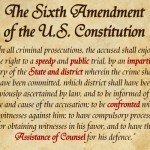
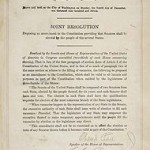
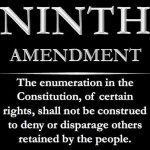
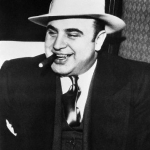
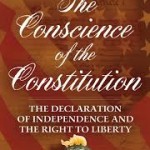








The USA vs. King George. Or as we know it, the Declaration of Independence
While the Declaration of Independence is revered for its eloquence, and inspirational philosophies, in the most straightforward sense it is a legal document written by a lawyer and approved by lawyers. Of the Declaration’s signers 25 of 56 were lawyers. Of the non-lawyers, the rest were in business and active in public affairs. The statistics […]